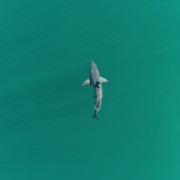- Science News
- Frontiers news
- Frontiers supports the ITRE Committee’s recommendations to promote freedom of scientific research in the EU
Frontiers supports the ITRE Committee’s recommendations to promote freedom of scientific research in the EU
Academic freedom is an ironclad principle in the scholarly world. Yet, we have observed that academic freedom has come under pressure in recent years.
On 25 September 2023, the European Parliament Committee on Industry, Research, and Energy (ITRE) published a draft report on the promotion of the freedom of scientific research in the European Union (EU). This sentiment was echoed by Germany’s Minister of Science Bettina Stark-Watzinger in a guest article published in the Frankfurter Allgemeine Zeitung the same day.

Days earlier, on 19 September 2023, the European Parliament Committee on Industry, Research, and Energy (ITRE) convened to delve into a critical initiative championing the freedom of scientific research within the European Union (EU). Spearheaded by German rapporteur Christian Ehler, Member of the European Parliament for the European People’s Party, this initiative underscored the pivotal role of safeguarding academic freedom. The discussion resonated with concerns about academic liberties, especially in light of events like the expulsion of “a Hungarian university,” highlighting the paramount importance of upholding the rule of law.
Christian Ehler shared insights into a worrying precedent set by the Hungarian university case, where academic freedom faced a disconcerting threat. The name of the university was not mentioned in the report. However, it is understood that the case referred to is the George Soros-funded Central European University (CEU), which was forced out of Hungary in 2017. This case exposed a troubling gap in protections and illuminated a novel challenge to academic freedom within the EU.
Ehler fervently advocated for robust EU safeguards to ensure scientists can pursue research and share their findings without apprehension. He emphasized the complexity of the issue, necessitating delicate negotiations and compromise. Despite existing declarations and legal precedents, he called for strong political leadership to enshrine these principles in concrete legislation. Ehler’s hope is that the European Commission will promptly present a legislative proposal, solidifying the commitment to protecting academic freedom in the EU.
In a guest article for the Frankfurter Allgemeine Zeitung published on 25 September, German Minister of Science Bettina Stark-Watzinger, FDP, echoes Ehler’s stance. She emphasizes that academic freedom is not only enshrined in Article 5, Paragraph 3 of the Grundgesetz (German Constitution) of the Federal Republic of Germany, but is also guaranteed in the Universal Declaration of Human Rights and the United Nations Human Rights Covenant.
In her article, Stark-Watzinger provides examples of threats to scientists, including from animal rights activists and opponents of genetic engineering, as well as attacks from both the right and left political spectrums deliberately aimed at constraining diversity within the scientific community. She passionately argues that the daily struggle for maximum academic freedom should not solely rest with parliaments and courts. Instead, she calls upon all of us to take it upon ourselves to regain control of the discourse in favor of freedom.
From the perspective of a fully open access publisher like Frontiers, Ehler’s and Stark-Watzinger’s public engagements promoting the freedom of scientific research in the EU align with the core principles of our company. In a world facing global existential threats, such as health crises and climate change, which indispensably go hand in hand with societal changes, unrestricted sharing of scientific knowledge is paramount. Science thrives when it transcends political influences and financial barriers. This is why it is essential to ensure that research findings are not hidden behind paywalls and that quality information can be publicly shared without having to fear restrictions on professional scientific research of any kind.
We welcome the proposal from Mikuláš Peksa on behalf of the Greens/EFA Group to amend the motion for a resolution to Paragraph 1c, calling for “efficient and transparent creation of knowledge without artificial barriers hindering the access to information and its dissemination […] and stresses that publicly funded scientific results shall be published in open-access academic journals and the results shall be accessible for everyone in an easily accessible way.”
Frontiers’ support of open science extends beyond full text accessibility to promote unrestricted access to research data following the FAIR principles* and within the appropriate framework of individual data protection rights. This allows artificial intelligence technologies, a critical component of academic discourse, to access quality-assured data, enhancing the performance and accuracy of such systems**. In a joint effort, publishers and researchers can ensure that these goals will be achieved.
Our mission at Frontiers is to advocate for fully open science, enabling seamless collaboration among scientists and accelerating innovation for the benefit of society at large. “Science needs to be open” – and today we would like to add “and researchers need to be free from constraint.” This commitment to open science has been at the heart of our business since our establishment in 2007, with the ultimate goal of providing the broadest possible access to our collective knowledge.
* The FAIR principles stipulate that Data should be Findable, Accessible, Interoperable, and Reusable.
** One example of such an initiative that supports this vision of open and quality-assured data is the German Council for Scientific Information Infrastructures (RfII). Their report, “The Data Quality Challenge – February 2020“, provides a comprehensive overview of the current state and future prospects of data quality in scientific research, while the organization itself assists in matters related to establishing a sustainable information infrastructure.
ENDS
About Frontiers
Frontiers is the 3rd most-cited and 6th largest research publisher. We publish groundbreaking discoveries by the world’s top experts. Scientists empower society and our mission is to accelerate scientific discovery by making science open. We place the researcher at the center of everything we do and enable the research community to develop the solutions we need to live healthy lives on a healthy planet. Featuring custom-built technology, artificial intelligence, and rigorous quality standards, our research articles have been viewed more than 2.1 billion times, reflecting the power of research that is open for all.







